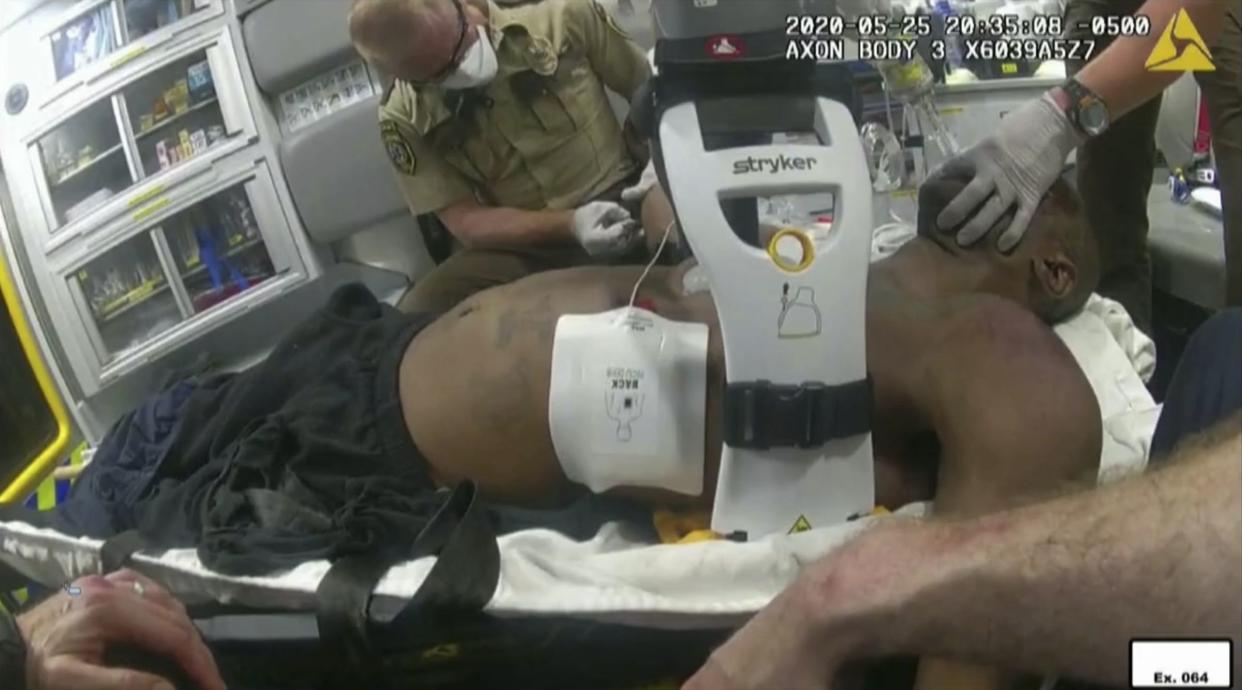Paramedic wasn’t told George Floyd stopped breathing: testimony
A paramedic who treated George Floyd on the day of his murder wasn’t told the man had stopped breathing and had no pulse when the officers upgraded their emergency call, according to testimony heard Wednesday.
First responder Derek Smith testified during the federal trial of three former Minneapolis police officers that Floyd had no pulse and his pupil’s were large when he arrived at the scene on May 25, 2020. Smith said these two factors indicated “the patient was probably deceased.”

J. Alexander Kueng, Thomas Lane and Tou Thao are charged with depriving Floyd of his civil rights by failing to intervene and save Floyd’s life while ex-officer Derek Chauvin knelt on his neck for nearly 10 minutes, Kueng knelt on his back, Lane held his legs and Thao kept a gathering crowd from getting close.
Floyd’s killing sparked worldwide protests over racial injustice and police brutality. Chauvin was convicted of murder and manslaughter charges in Minnesota last year and also pleaded guilty to a federal civil rights charge. The other three will go on trial for aiding and abetting both murder and manslaughter charges.
In body-camera footage played for the jury, Smith asks for an assessment of the situation. Lane describes how Floyd was arrested for using a counterfeit $20 bill and was restrained after he kicked his way out of the squad car and that the officers were “just basically restraining him until you guys got here.”
Smith later agreed with assistant U.S. attorney Manda Sertich that the officers were trained to perform CPR and should have started before paramedics arrived, on top of giving the paramedics more information about Floyd’s condition.
Smith said they brought Floyd into an ambulance and driven away from the hostile-growing crowd and performed a number of life-saving measures, including creating an airway and inserting an IV. Lane also rode along and performed chest compressions.
However, Smith also told Lane’s defense attorney Earl Gray that the former officer was helpful and even used an air bag to try to ventilate Floyd’s lungs. Smith also told Thao’s attorney Robert Paule that they would not have moved Floyd if the bystanders weren’t adding to the tension of the situation.
Smith also told the defense he was worried Floyd might have earlier been exhibiting “excited delirium,” which can occur after drug use and can give the appearance of added strength. Medical examiners have attributed in-custody deaths to “excited delirium” in other instances, but the science behind the phenomena is questionable.
Kueng, Lane and Thao are all charged with failing to provide medical care. Thao and Kueng are also charged with failing to stop Chauvin.
Lane is expected to testify in the trial, which could last as long as four weeks.
With News Wire Services
